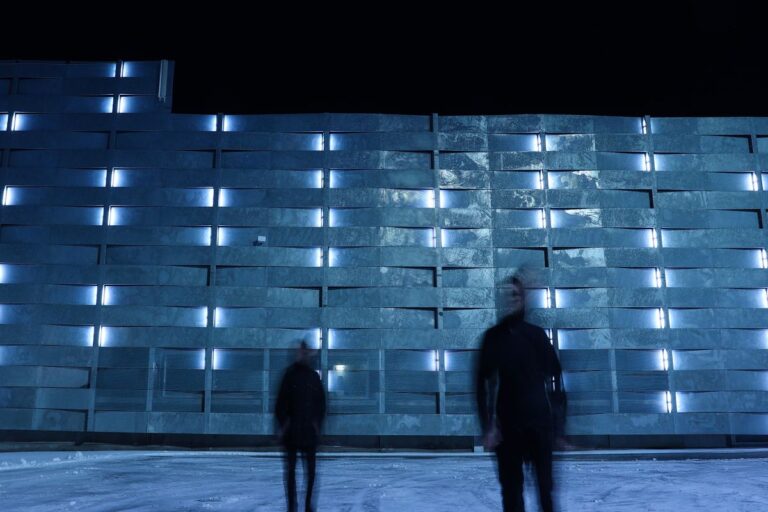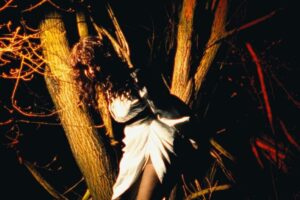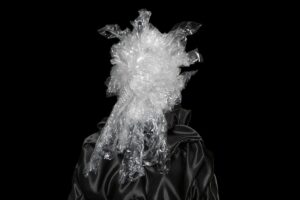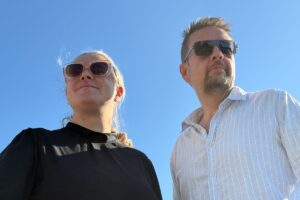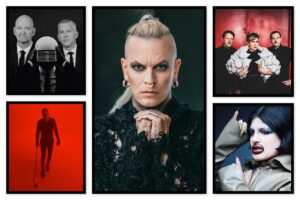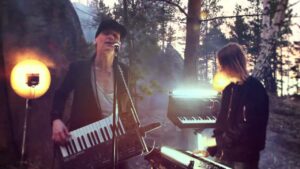Some bands thrive in the spotlight. Others cultivate something quieter, more enduring. For two decades, Swedish duo Rupesh Cartel has remained one of the genre’s best-kept secrets—an underground favorite known for their heartfelt songwriting, polished sound, and loyal fanbase.
The band, comprised of Viktor Ginner and Daniel Bergdahl, debuted in 2005 with their album Mainland and soon followed it with a pair of elegant electronic releases. After 2009’s Anchor Baby, things went quiet. A few EPs trickled out in recent years, but a full-length seemed unlikely—until now. Residual Light, their long-awaited fourth album, arrives on May 2, and it finds the band in a more introspective, atmospheric mode. The songs are slower, the moods deeper, and the production—as always—immaculate.
Part of that meditative energy may stem from the album’s unconventional recording process. Some vocals were tracked in a van, parked by a remote Swedish lake, fishing rods nearby. That unexpected stillness seems to have seeped into the music, giving Residual Light its uniquely calm, reflective character.
I reached out to Viktor Ginner of Rupesh Cartel to find out what’s changed since the band started 20 years ago and how they approached the creative process this time around. Here’s what he told me.
It’s been 15 years since your last full-length, Anchor Baby. How has Rupesh Cartel—your music, the band, your lives—evolved in that time?
The kids have grown, and family life is less stressful, so there’s more time for making music and for being creative and reflective in general. Maybe we’re a bit wiser now and a little calmer at heart.
There’s probably less of that youthful desperation in this new album compared to our earlier work. Age has also made us care less about certain things. You know, like I don’t really mind anymore if something we do sounds “too much like Depeche Mode” or whatever. If we like it, it’s fine.
You debuted on the influential synthpop label A Different Drum, and today you’re on another significant label, Progress Productions. How does it feel to be part of two such distinguished rosters in the genre?
It’s an honour. Both labels are really cool, and run by the nicest people. I’m not sure if A Different Drum is still active, but Todd Durant is a great guy.
Those labels represent two very different eras of music. What changes in the industry have made the biggest impact on you? How is Progress supporting you through today’s music landscape?
Spotify and all the other platforms are obviously the biggest change. After our last album, I honestly didn’t think we’d ever release another physical CD. The plan was to keep making music, but just release EPs, and only digital. But a lot of fans wanted a full-length album and a physical product. So we were really happy that Progress Productions wanted to release it and take on the hassle of actually making a CD.
Torny Gottberg at Progress is a pro and a superhero. We’re pretty useless when it comes to the business side and all the practical stuff around releasing music, while Torny knows everything about it. He also has amazing skills when it comes to digital distribution, so we couldn’t be happier.
I saw photos on Facebook suggesting you recorded Residual Light in a van. Can you tell me about that? What was the setup like, and how did it shape the music?
Yes. Daniel owns a small camper van, and every now and then we take short trips with it. The plan is always to go fishing, but we usually just end up drinking beer and talking. Last summer, however, we brought some gear and recorded vocals in the van. It was a couple of hours from Stockholm, out in the woods by a small lake. It was actually kind of meditative and inspiring. I guess it added a little calm to the process.
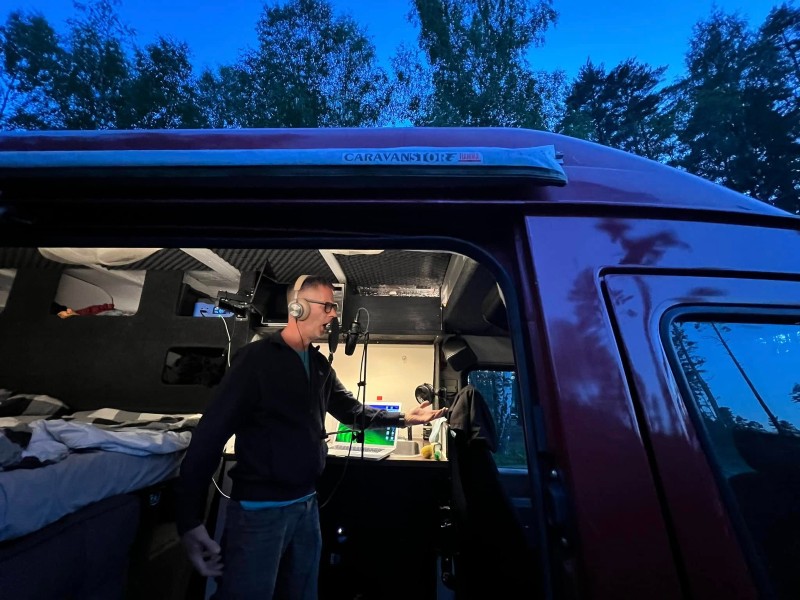
Some of the track titles—like “Phantom Battles” and “Killer in a Crowd”—suggest emotional or psychological trauma. Is there a connecting thread across the album, thematically or lyrically?
Well, I’d say “trauma” might be a bit too strong a word. For me, at least. But quite a few of the songs are about that kind of internal struggle. The track “Endless” is probably the most obvious example.
Those themes are kind of foundational for us. The lyrics often revolve around things I don’t talk about with anyone but Daniel, and vice versa. In that sense, Rupesh Cartel is part of our friendship, and our friendship is part of Rupesh Cartel.
I get a strong sense of motion listening to Residual Light. It opens with energetic tracks like “Phantom Battles” and “Rewards,” then gradually morphs into moodier, atmospheric territory—especially “Pipe Dream,” one of my favorites on the album. By the end, I felt like I’d dissolved into the music. Was that journey intentional?
That’s really nice to hear. I think we just put the songs in the order that felt most natural. Maybe that sense of a journey came out of that.
There are more slow-tempo tracks on this album than on any of our previous ones, so the sequencing felt extra important to make the full album experience feel interesting from start to finish.
Your music is rooted in synthpop but never feels retro—there’s always a modern polish to it. How do you avoid falling into the genre’s retro clichés and keep your sound feeling current?
Thank you! If that’s true, it’s not really something we do intentionally. We just make music we like and find interesting. Maybe some of the modern feel comes from listening to a lot of current dance music and stuff like that. Also, we don’t listen a whole lot to contemporary synthpop, which I guess tends to lean pretty retro.
Let’s say you’re driving late at night, probably in your studio van. Where are you headed? What’s playing on the stereo?
I really like listening to metal when I’m driving, like ’90s death metal or modern black metal, for example. But Daniel hates that stuff, so we usually settle on something we both like. Mostly older bands like The Cure, Sisters of Mercy, Red House Painters, Interpol, Slowdive, and so on. As for newer music, Soft Kill is a band we both really like.
And where are we headed? Probably somewhere in Södermanland, south of Stockholm—by a lake, deep in the woods, with a bag of beers, a couple of fishing rods, and recording equipment.

